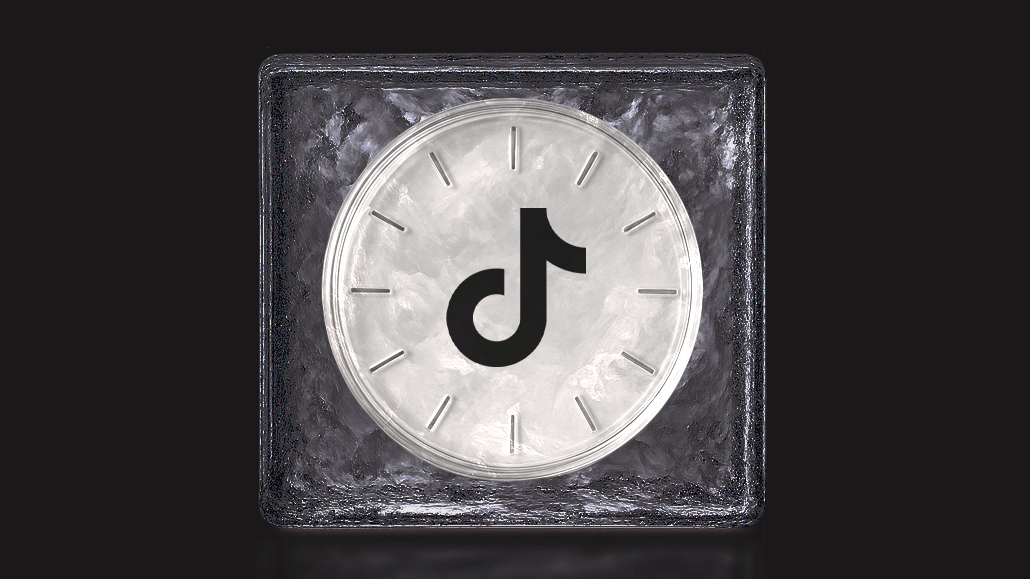Secure your place at the Digiday Publishing Summit in Vail, March 23-25
TikTok ad execs are finally talking — just enough to keep Q4 intact

With the Chinese government offering little indication it will sign off on TikTok’s proposed framework deal with Washington, ad execs are left addressing marketers’ concerns that the agreement could still unravel. They’ve spent recent weeks telling marketers that nothing will change in the fourth quarter and that the uncertainty hanging over the platform’s future should be clear by early next year. It’s a reassuring line for advertisers, though one that also tries to shore up a lucrative period for the app.
“In a recent meeting with TikTok, they were adamant that nothing would change in Q4,” said Jellyfish’s global evp paid social, Shamsul Chowdhury. “All changes, if any, would come into effect in 2026.”
It’s not much, but it’s more than marketers have been able to get out of TikTok so far — and, for now, that will have to do. Until recently, any mention of the app’s future in the U.S. was met with silence or vague assurances from TikTok’s U.S. agency team. At least marketers have a loose timeline that, for now, lines up with the latest January 2026 deadline to ratify the deal. In a saga defined by guesswork and political theater, some news is better than none.
Especially during the key holiday season. In fact, marketers are already weighing up how much they can realistically spend on the app with so much uncertainty still around it.
Not even last month’s announcement of a “framework deal” on TikTok’s U.S. operations has done much to calm marketers’ nerves. The Chinese government has yet to formally approve it, and whatever initial optimism the news sparked quickly gave way to frustration over the lack of detail from either administration about how the new structure would actually work. If anything, the announcement deepened the uncertainty.
What it revealed amounted to a sketch. Under the plan, U.S. investors would take majority control of TikTok’s domestic operations and oversee a licensed version of its recommendation algorithm. American companies are expected to own about 65% of the spun-off U.S. entity, while ByteDance and Chinese investors would hold less than 20%. A seven-member board — six of them Americans with backgrounds in cybersecurity and national security — would govern the new company, according to the White House.
The gaps in detail have split the market. And caused the industry to work out the gray area themselves.
“Our understanding is that this isn’t a brand-new app launch, rather, it’s an update to the existing TikTok platform,” said Ethan Kramer, evp of innovation at Go Fish. “There’s no major migration risk, though we may see short-term performance recalibration as the system adjusts.”
Though Brainlabs chief product officer Adam Edwards has a different take.
“There is risk — the algorithm behind the recommendation engine is being licensed to the U.S. entity but not fully transferred,” he explained. “If it needs to be retrained on new U.S. data, that could create a ramp up period with degraded ad performance or reduced user engagement (and corresponding inventory).”
Still, all of it remains hypothetical — a string of uncertainties until China signs off on Trump’s deal.
“It’s unclear if the new [U.S.] TikTok will be able to retain its current U.S. audience. If they have to, many users will likely migrate to a new app — if out of curiosity alone,” said industry expert, social media and creator economy (and former eMarketer vp) Jasmine Enberg. “But whether they stay depends on the user experience. Even perceived shifts in content or ‘vibes’ as a result of the change in ownership could impact usage, which would have a ripple effect on advertiser performance.”
TikTok did not respond to Digiday’s request for comment.
More in Marketing

WTF is Meta’s Manus tool?
Meta added a new agentic AI tool to its Ads Manager in February. Buyers have been cautiously probing its potential use cases.

Agencies grapple with economics of a new marketing currency: the AI token
Token costs pose questions for under-pressure agency pricing models. Are they a line item, a cost center — or an opportunity?

From Boll & Branch to Bogg, brands battle a surge of AI-driven return fraud
Retailers say fraudsters are increasingly using AI tools to generate fake damage photos, receipts and documentation to claim refunds.








